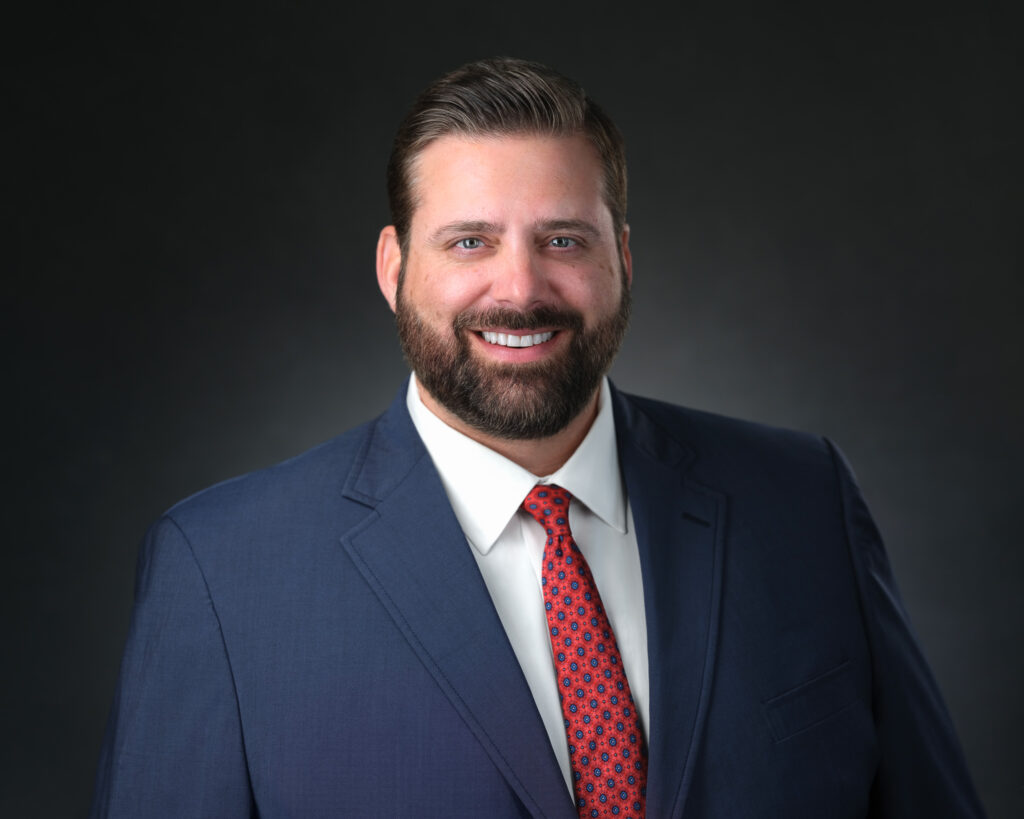Injured motorcycle riders face challenges that most drivers never experience. The days and weeks following a motorcycle accident bring not just physical pain, but a whirlwind of emotions, seemingly endless bills, and complex legal questions that can feel like more than you can handle.
Your lawyer advocates for you as an individual whose life was disrupted by another’s negligence. A dedicated attorney provides focused legal services and objective guidance to help you navigate the complex recovery and claims process.
What Does a Motorcycle Accident Lawyer Do for an Injured Rider?
Your motorcycle accident attorney will be your personal advocate, stepping into the chaos and making sense of everything. From the moment they accept your case, your lawyer will work behind the scenes to protect your interests and secure the compensation you deserve.
Here’s a chronological list of how your lawyer will contribute to your case:
- Your attorney conducts a comprehensive investigation by visiting the accident scene, photographing evidence, consulting experts, interviewing witnesses, and analyzing all other evidence.
- They may bring in scene reconstruction specialists to demonstrate precisely how the accident happened.
- Your lawyer obtains and examines all documentation of your injuries and healthcare services.
- Your legal team calculates your case’s true worth by examining factors beyond immediate medical expenses.
- Your lawyer serves as your representative when dealing with insurance companies, protecting you from trained adjusters whose primary goal is to limit your payout.
- Your lawyer recognizes and counters pressure tactics to force victims into accepting inadequate settlement offers.
- Settlement negotiations pit your lawyer’s case against the liable parties.
- Should negotiations fail to produce a fair result, your motorcycle accident attorney will be prepared to pursue your case through trial proceedings.
Having a lawyer will prevent you from accidentally making statements that can be used against you, missing deadlines, or suffering other setbacks that experienced attorneys just don’t allow.
Think of your motorcycle accident case as a lifelong investment, as the settlement or judgment you receive (or don’t receive) is likely to have long-term ramifications. When viewed in this light, hiring a lawyer to pursue the best possible outcome makes sense.
The Personal Support You Need During Recovery
Quality motorcycle accident law firms provide comprehensive support that extends beyond their legal work. They care about the riders they represent as people, and demonstrate that care through:
A law firm manages the legal and administrative burdens of your case so you can focus on your health. They protect your claim’s integrity by:
- Serving as Your Shield: Your attorney acts as a barrier between you and insurance adjusters, medical billing departments, and opposing counsel. This buffer allows you to heal without constant interruptions and pressure.
- Managing Case-Related Communications: Your legal team handles all communications about your claim. They often work with medical providers you have seen to obtain records and bills necessary to build a strong case.
- Organizing Your Financial Documentation: Attorneys help you track and document your accident-related expenses to ensure they are properly included in your damages claim.
- Connecting You with a Professional Network: Law firms can refer you to a network of professionals, such as accident reconstructionists or economic experts, who can provide evidence to strengthen your claim.
- Providing Clear and Consistent Updates: Your legal team keeps you informed about your case’s progress in plain language, not legal jargon.
- Answering Family Questions: Attorneys can answer questions from your immediate family about the legal process, helping them understand how to best support your claim.
Riders and other accident victims often suffer post-traumatic stress disorder (PTSD). The sudden, unexpected toll of an injury (and possibly disability) brings further stress. Experienced attorneys recognize that their clients require more than just a lawyer—they need a comprehensive support network.
Your Lawyer Will Also Demand That Liable Parties Stick to the Facts
Unfortunately, motorcycle riders often face unfair prejudice after accidents. Stereotypes about bikers being daredevils can influence how insurance adjusters, opposing attorneys, and even potential jury members view motorcycle accident claims. This bias can seriously impact the value of settlements and verdicts—unless it’s aggressively combated.
Your lawyer will work to present you as a responsible rider who was simply the victim of another driver’s carelessness. Your riding experience, safety record, and the specific circumstances of your accident may all support this mission. Your legal team may counter anti-rider bias by:
- Showing your use of protective gear and responsible riding habits
- Making sure everyone understands that motorcycles have equal rights on the road
- Using specialists to explain motorcycle dynamics and what caused the accident
- Demonstrating your responsible lifestyle and positive involvement in your community
Your lawyer will also emphasize how vulnerable motorcycle riders are compared to people in cars and trucks. While some people view motorcycles as inherently dangerous, the truth is that most motorcycle accidents happen because other drivers fail to see motorcycles or misjudge their speed and distance.
Will My Motorcycle Accident Case Go to Trial?
Most motorcycle accident cases settle out of court, but the possibility of going to trial provides a lawyer with substantial leverage in settlement negotiations. Understanding when to settle and when to proceed to trial requires careful analysis of multiple factors, and your lawyer will conduct that analysis if necessary.

Settlement offers the advantages of quicker resolution with clearly defined parameters. You know exactly what compensation you’ll receive and avoid a trial’s uncertainty, cost, and stress. Settlements also provide privacy, as the terms typically remain confidential and are not made part of the public record.
However, settlement offers don’t always reflect the value of your case. Insurance companies sometimes make lowball offers, hoping accident victims will accept the lowball offer rather than face the challenges of going to court. Your attorney will carefully analyze any settlement offer and advise you whether it adequately compensates you for your damages.
Some factors that may influence whether your case settles or goes to trial are:
- Strength of evidence: How clear it is that the other party was at fault.
- Severity of injuries: More serious injuries typically justify higher compensation, and higher compensation can take longer to obtain.
- Insurance policy limits: Available coverage may cap a rider’s potential recovery.
- Your unique circumstances: Your financial needs and ability to wait for trial resolution can affect your legal strategy.
Trial proceedings may offer the potential for higher compensation, particularly in cases involving serious injuries or clear instances of negligence. Juries sometimes award amounts significantly higher than insurance settlement offers, particularly when they’re moved by the impact of the injuries on the victim’s life.
An attorney may prepare for the possibility of trial while continuing settlement negotiations. This dual approach ensures they are ready to proceed with any necessary course of action, whether that involves finalizing a settlement or going to court.
Damages Riders Suffer When They Are Injured in Traffic Accidents
Motorcycle accidents are synonymous with severe injuries, and severe injuries cause wide-ranging damages that may include:
- Immediate medical costs: Emergency room treatment, surgery, and hospitalization expenses frequently reach tens or hundreds of thousands of dollars, creating an immediate financial crisis for riders and their families.
- Long-term healthcare expenses: Rehabilitation, physical therapy, ongoing medical treatment, specialized equipment, and home modifications can continue for years or a lifetime, creating an ongoing financial burden.
- Income and employment losses: Riders face lost income and reduced earning capacity from long-term injuries and permanent disabilities that prevent them from returning to their previous employment or pursuing professional opportunities.
- Property and equipment damage: Motorcycle repairs or replacement costs are among the property damages often included in cases like yours.
- Pain and Suffering: This legal term encompasses the non-financial impact of the accident, including physical pain, emotional distress, depression, loss of enjoyment of life, and the psychological trauma resulting from disability or disfigurement.
- Social and relationship impact: Physical limitations often lead to isolation and strain on family relationships as they adapt to new care needs. At the same time, riders may lose access to social activities and recreational pursuits they once enjoyed.
- Chronic pain and ongoing symptoms: Persistent pain may affect sleep patterns and mood regulation while requiring ongoing medical care.
- Permanent disability consequences: Riders may need assistance with daily activities and adaptive equipment for tasks they previously performed independently, while losing access to activities that once brought them joy and fulfillment.
- Quality of life losses: The combination of physical limitations, financial stress, and emotional trauma fundamentally alters a rider’s life trajectory and future plans, often requiring complete lifestyle adjustments and revised life goals.
If you have any other damages related to your accident, your lawyer will demand fair compensation for those damages, too.
Damages from Fatal Motorcycle Accidents
When a rider loses their life, surviving family members face not only devastating grief but also severe financial challenges. Wrongful death claims provide a legal way to recover damages, though everyone understands that no amount of money can truly make up for losing someone you love.
Wrongful death damages typically include:
- Lost future earnings
- Loss of the decedent’s professional benefits (which may include retirement savings and health insurance)
- Funeral and burial expenses
- Medical expenses
- Loss of consortium
The non-financial damages in wrongful death cases address the heartbreaking losses family members experience. Losing companionship, guidance, and emotional support affects surviving spouses, children, and other dependents in profound ways that go far beyond money considerations. Grief is another critical consideration in every wrongful death case.
Your attorney will work with economists, vocational experts, and other specialists to accurately calculate each of your accident-related damages.
Your Lawyer Will Ensure No Insurers Get the Best of You
Insurance providers operate as profit-driven enterprises, creating inherent incentives to limit financial exposure on claims.

Claims adjusters employ sophisticated information-gathering strategies designed to minimize payouts. These professionals may reach out to you immediately following an accident, projecting empathy, but in reality, they may have bad intentions for you.
One of the insurance companies’ goals may be to coax statements that can later undermine your compensation claim. Without experienced legal counsel, riders frequently share details that harm their case, without even realizing it.
Your attorney will protect you from all of the bad-faith tactics that riders often face, which include:
- Expedited settlement proposals, which are often lowball offers that will do the rider more harm than good
- Documented testimony requests, which may mean pressuring riders to give statements when they are confused or otherwise compromised
- Comprehensive medical investigations that are biased in the insurance companies’ favor (perhaps because they have hand-picked the doctor)
- Covert monitoring, which may include conducting surveillance operations to gather contradictory evidence that can harm the rider’s claim
Attorneys aren’t combative with insurance companies just for the heck of it. A savvy lawyer is willing to negotiate cooperatively, but quickly recognizes when insurers are operating in bad faith (and responds with warranted aggression).
How a Contingency Fee Agreement Works
Most motorcycle accident law firms represent clients on a contingency fee basis. This means you pay no upfront or hourly fees. Your attorney’s fee is a percentage of the financial compensation they recover for you. If they do not win your case, you owe them no attorney’s fee.
Your lawyer typically advances all litigation costs, such as fees for expert witnesses, accident reconstruction, and court filings.
The fee agreement you sign will clearly explain how these costs are handled when your case concludes. This arrangement allows you to pursue justice without worrying about upfront expenses.
Motorcycle Accident FAQs
What should I do in the first few days after a motorcycle accident?
First, seek immediate medical attention for all your injuries, even if they seem minor. Follow your doctor’s treatment plan precisely. Report the accident to the police and your own insurance company. Avoid giving recorded statements to any other driver’s insurance adjuster. Preserve any evidence you have, such as photos from the scene, damaged gear, and contact information for witnesses. Finally, consult an attorney to understand your rights before deadlines pass.
How long do I have to file a motorcycle accident lawsuit?
Every state has a law called the statute of limitations, which sets a strict deadline for filing a personal injury lawsuit.
The time limit varies by state but is often two or three years from the date of the accident.
If you miss this deadline, you will likely lose your right to recover any compensation. Because exceptions can apply, you should consult an attorney immediately to determine the specific deadline for your case.
What if the insurance company says I was partially at fault for the accident?
Do not accept an insurance company's assessment of fault without speaking to a lawyer. Many states use a comparative negligence system. This means you can still recover damages even if you were partially at fault, but your percentage of fault will reduce your compensation award.
An attorney can build a case to challenge unfair allegations of fault and protect your right to fair compensation.
Why shouldn't I just accept the insurance company's first settlement offer?
Initial settlement offers from insurance companies are often far less than the full value of your claim. Adjusters know you are dealing with medical bills and lost income, and they may offer a quick, low amount hoping you will accept it out of desperation.
An experienced attorney can calculate the true value of your case, including future medical needs and lost earning capacity, and negotiate for a settlement that fully and fairly compensates you for all your losses.
Every Rider Deserves an Aggressive Attorney, Hire Yours as Soon as Possible

The legal process takes time, but this timeline can work in your favor by allowing your lawyer to develop a complete understanding of your injuries and their long-term impact. Rushing to settle before you understand the full scope of your damages often results in inadequate compensation that leaves you struggling with ongoing expenses and limitations.
Throughout this process, remember that seeking fair compensation isn’t just about your recovery. Holding careless drivers accountable for their actions helps promote safer driving habits and potentially prevents future accidents. Your case may even help to make the roads safer for all motorcycle riders.
Do not wait to hire your lawyer. Consultations are free, and there is no risk or obligation in speaking with prospective law firms.